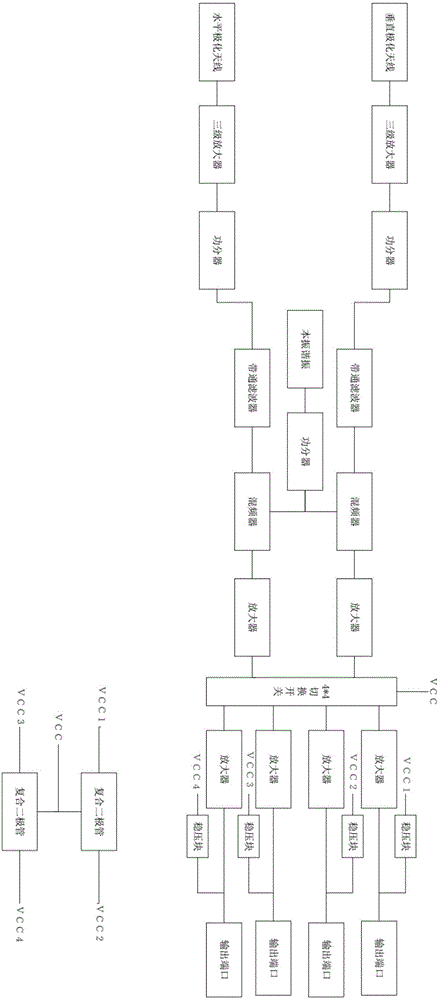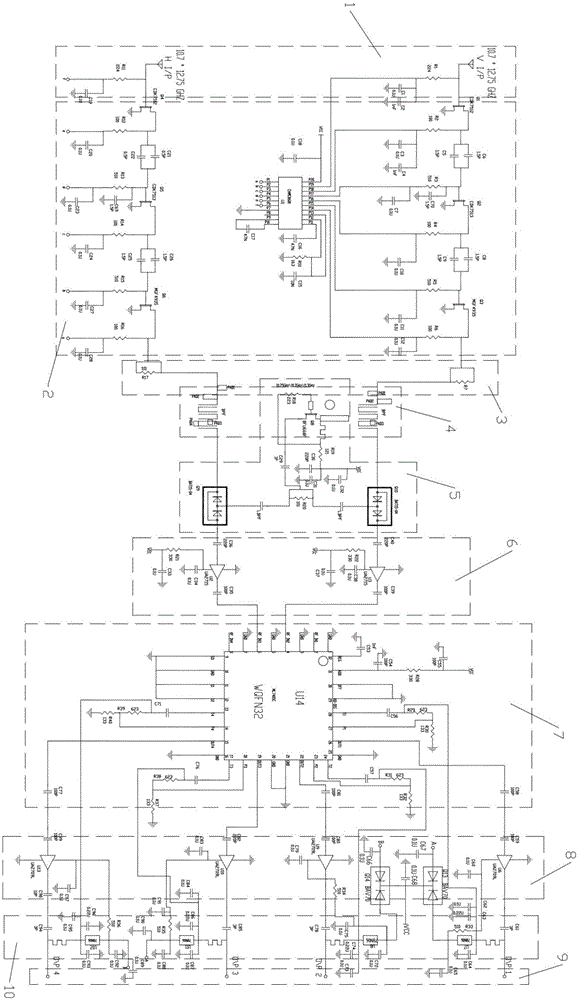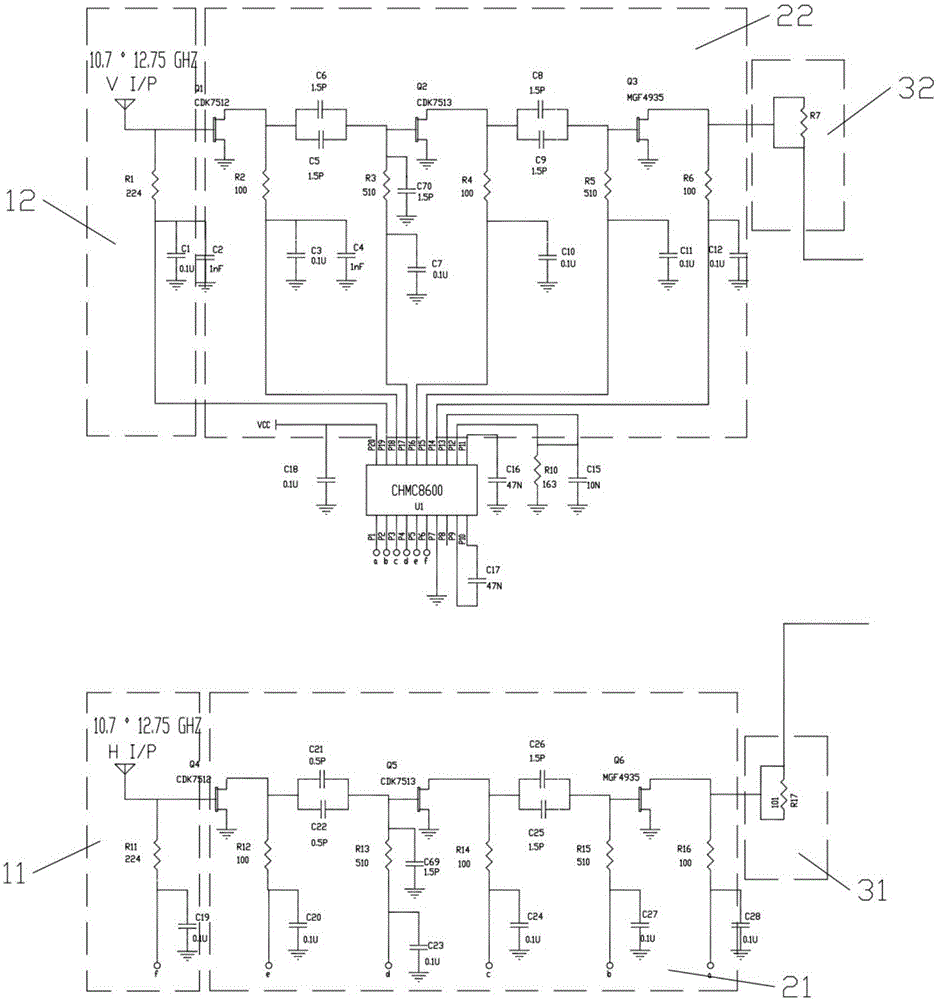Low noise block circuit and low noise block
A high-frequency head and circuit technology, applied in the field of frequency reduction, can solve the problems of increasing product material costs and labor assembly costs, inter-stage loss and signal interference, and existing hidden dangers, saving material costs and labor costs, and weakening mutual Interference, improve the effect of output utilization
- Summary
- Abstract
- Description
- Claims
- Application Information
AI Technical Summary
Problems solved by technology
Method used
Image
Examples
Embodiment 1
[0034] Such as Figure 1-5 As shown, a tuner circuit includes a radio frequency receiving module 1, a radio frequency amplifying module 2, a radio frequency power dividing module 3, a high frequency filtering module 4, a single local oscillator mixing module 5, and a first-stage intermediate frequency amplifying module 6 connected in sequence , switch 5, secondary intermediate frequency amplification module 8 and several output ports 9.
[0035] The radio frequency receiving module 1 includes a horizontally polarized antenna 11 and a vertically polarized antenna 12, which are respectively used to receive ku-band radio frequency signals in the spatial horizontal and vertical directions, and the ku-band frequency is 10.7~12.75GHz;
[0036] The radio frequency amplification module 2 includes a three-stage amplifier 21 composed of a first amplifier, a second amplifier and a third amplifier for amplifying horizontally polarized signals, and a fourth amplifier and a fifth amplifier ...
Embodiment 2
[0061] Such as Figure 9 and 10 , a tuner, comprising a waveguide 202, a waveguide port 201 connected to both ends of the waveguide 202 and a carrier board 205, the carrier board 205 is provided with a PCB 203, and the PCB 203 is provided with an implementation For the tuner circuit described in Example 1, several wiring holes 204 are provided on the carrier board 205 .
[0062] In a traditional tuner, PCBs are generally provided on both sides (front and back) of the carrier board 205 for the wiring of the tuner circuit. After using the optimized circuit in Embodiment 1, only one PCB is needed 203 (the back of the carrier board 205) can complete the wiring of the entire tuner circuit, which greatly saves material costs and labor costs, and the output intermediate frequency signal is more stable without noise interference.
PUM
 Login to View More
Login to View More Abstract
Description
Claims
Application Information
 Login to View More
Login to View More - R&D
- Intellectual Property
- Life Sciences
- Materials
- Tech Scout
- Unparalleled Data Quality
- Higher Quality Content
- 60% Fewer Hallucinations
Browse by: Latest US Patents, China's latest patents, Technical Efficacy Thesaurus, Application Domain, Technology Topic, Popular Technical Reports.
© 2025 PatSnap. All rights reserved.Legal|Privacy policy|Modern Slavery Act Transparency Statement|Sitemap|About US| Contact US: help@patsnap.com



